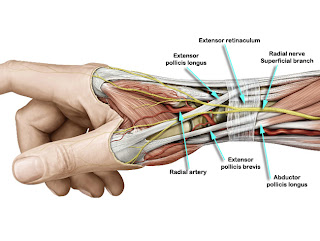Rehabilitation Medicine and Microsoft came together on healthy work force issue
Rusk Institute of Rehabilitation Medicine and Microsoft to Present Innovations for a Healthy Workforce Media Forum July 13 Rehabilitation medicine and accessible technology will be presented as the major forces for maintaining the productive status of today's worker. NEW YORK -- July 5, 2005
What: Innovations for a Healthy Workforce, a forum presented by the Rusk Institute of Rehabilitation Medicine and Microsoft Corp., will examine the workplace issues confronted by people with physical and sensory disabilities that are caused by injury, disease or aging. Medical and technology experts will give brief presentations on health issues facing today's work force; medical issues pertaining to pain, weakness and the loss or impairment of vision, mobility or dexterity; and demonstrations of accessible technology products that can help mitigate each of those conditions.
In today's economy, computers are essential for many businesses and are a mainstay of personal and professional life around the world. Among working-age adults in the United States, 78 percent use computers -- 68 percent at home and 45 percent at work. With nearly 60 percent of the work force experiencing some level of disability or impairment due to chronic ailments (e.g., vision loss, carpal tunnel syndrome or arthritis) or serious injury, using a computer can be a challenge for many people.
Inability to operate computer technology can put workers of any age at a disadvantage that may lead to unemployment or lack of career advancement. It doesn't matter whether they are recent college graduates looking for a job, wounded soldiers returning from a tour of duty in Iraq, or aging baby boomers trying to stay competitive in today's work force. But this challenge can be overcome through the use of accessible technologies designed to help people with disabilities.
Who: Matthew H. M. Lee, M.D., Howard A. Rusk Professor of Rehabilitation Medicine, NYU Medic
What: Innovations for a Healthy Workforce, a forum presented by the Rusk Institute of Rehabilitation Medicine and Microsoft Corp., will examine the workplace issues confronted by people with physical and sensory disabilities that are caused by injury, disease or aging. Medical and technology experts will give brief presentations on health issues facing today's work force; medical issues pertaining to pain, weakness and the loss or impairment of vision, mobility or dexterity; and demonstrations of accessible technology products that can help mitigate each of those conditions.
In today's economy, computers are essential for many businesses and are a mainstay of personal and professional life around the world. Among working-age adults in the United States, 78 percent use computers -- 68 percent at home and 45 percent at work. With nearly 60 percent of the work force experiencing some level of disability or impairment due to chronic ailments (e.g., vision loss, carpal tunnel syndrome or arthritis) or serious injury, using a computer can be a challenge for many people.
Inability to operate computer technology can put workers of any age at a disadvantage that may lead to unemployment or lack of career advancement. It doesn't matter whether they are recent college graduates looking for a job, wounded soldiers returning from a tour of duty in Iraq, or aging baby boomers trying to stay competitive in today's work force. But this challenge can be overcome through the use of accessible technologies designed to help people with disabilities.
Who: Matthew H. M. Lee, M.D., Howard A. Rusk Professor of Rehabilitation Medicine, NYU Medic


Comments
Post a Comment